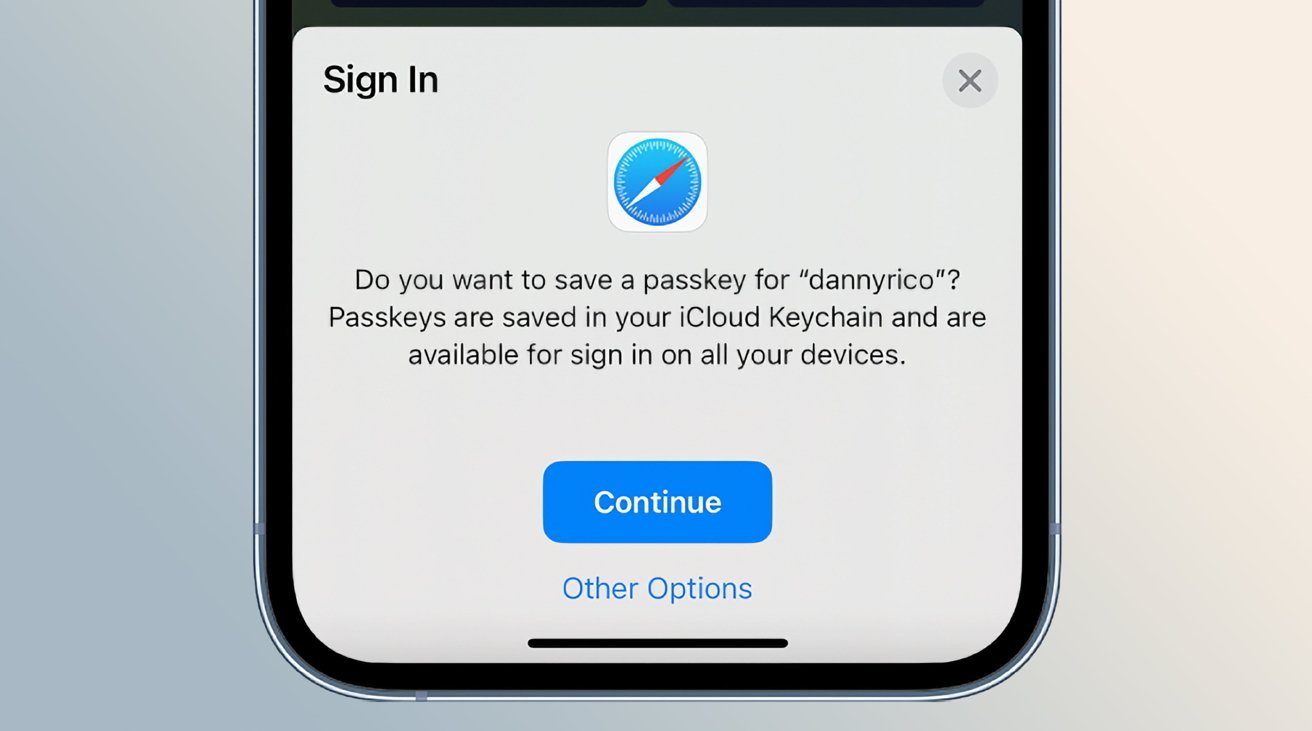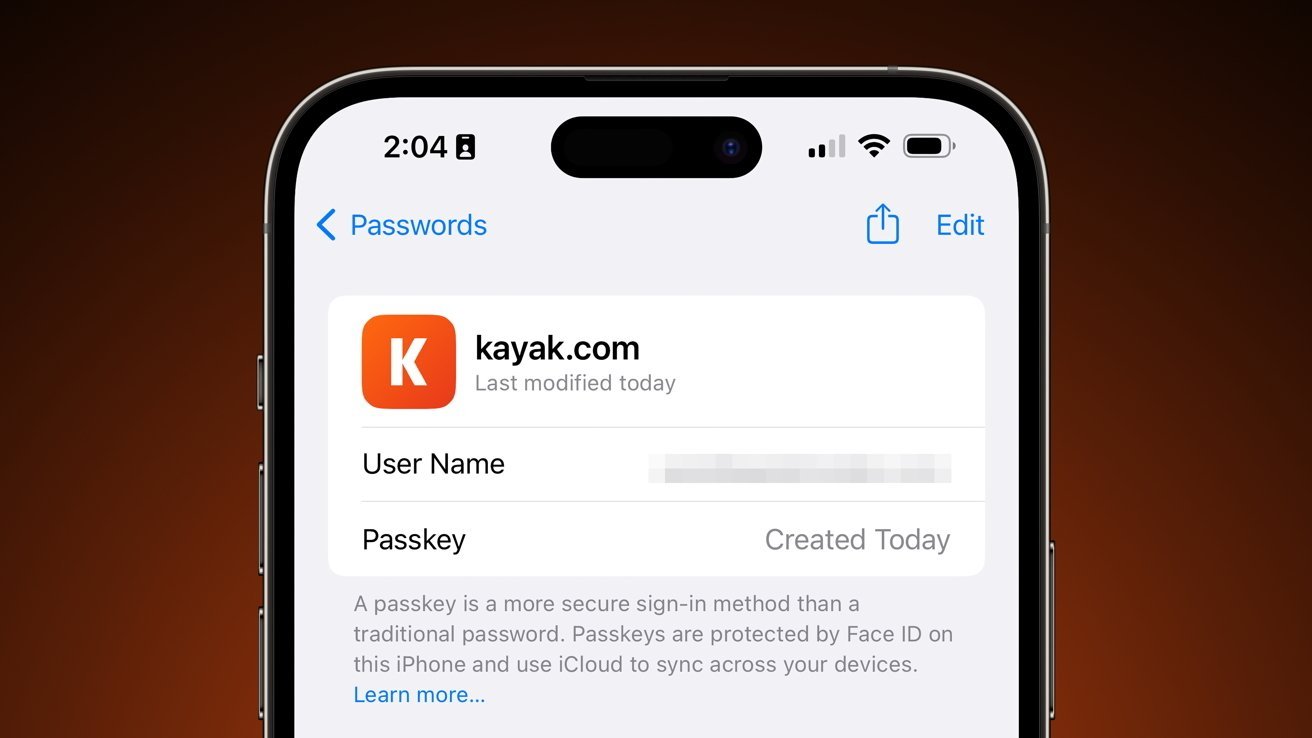Apple announced support for passkeys across its platforms in 2022, and many major apps and services have adopted the feature. Here's who uses the security feature.
Passkeys are a way to reach a passwordless future. With the security feature activated, users do not need to input their username or password when they log into a service or app.
To that end, the passkey standard was created by Apple, Google, and Microsoft in partnership with the FIDO Alliance and the World Wide Web Consortium. It is a cryptographic key directly associated with a specific device, which is used to confirm the user's identity.
There is a public and private pair, with the private information stored securely on the device. The public part is what is registered with the service or app.
With the secure element stored on the device, it must be confirmed via some kind of biometric security feature. On supported devices, this means either Touch ID or Face ID.
Here's how to use passkeys on your supported devices, with support starting with iOS 16 and macOS Ventura.
Passkeys also support multi-factor authentication built-in. This means users won't need to input a username and password, followed by a passcode.
Once the information is created, passkeys mean users can expect end-to-end encryption. It also means passkeys are automatically supported on other Apple devices linked with iCloud Keychain, and even non-Apple hardware.
Apps and services with passkey
The good news is that passkey adoption was relatively strong right out of the gate and continues to gain support in the months since Apple announced support. By the end of 2022, big names like Best Buy, eBay, and Google supported passkey, with more joining the list as time progressed.
Apps and services that support passkey as of March 3, 2024
- Apple
- Adobe
- Amazon
- Binance
- Best Buy
- Coinbase
- eBay
- Dashlane
- DocuSign
- GitHub
- GoDaddy
- Home Depot
- Instacart
- Kayak
- Microsoft (Windows)
- Nintendo
- Nvidia
- OnlyFans
- PayPal
- Robinhood
- Roblox
- Shop Pay
- Shopify
- Sony PlayStation
- Target
- TikTok
- Uber
- WordPress
- X
- Yahoo
Passkeys are already an industry standard, so support will continue to roll out. That includes better integration so users can simply expect better security when using their devices.
Apple, for instance, autogenerates Apple ID passkeys for iOS 17 and macOS Sonoma users. This means as users visit Apple's website or the iCloud website, they will be automatically logged in via a passkey.
Passkeys are a major step towards a passwordless future. But to get there, widespread adoption by the platforms, services, and apps is necessary. The trend is moving in the right direction, based on this list.
Updated March 3, 2024: More services supporting Passkey have been added to the list.
 Evan Selleck
Evan Selleck








-m.jpg)






 Charles Martin
Charles Martin
 Marko Zivkovic
Marko Zivkovic
 Andrew Orr
Andrew Orr
 Amber Neely
Amber Neely

 William Gallagher and Mike Wuerthele
William Gallagher and Mike Wuerthele











16 Comments
If Microsoft's site supports it, then hopefully when Microsoft closes the deal with Blizzard, (in October?) Blizzard's sites and services will also support it.
So what happens when someone steals your phone and knows your phone’s pin? Won’t they be able to quickly lock you out of your account with these passkeys?
Why am I not getting this? How is Passkey different from the saved Usernames and Passwords saved on my iCloud Keychain, other than that the Passkey is hidden even from me? If I use Passkey on a site, how do I log-in on a third-person device, say a company computer at work? And what if I have different accounts for the same service on one device, say separate Amazon accounts?